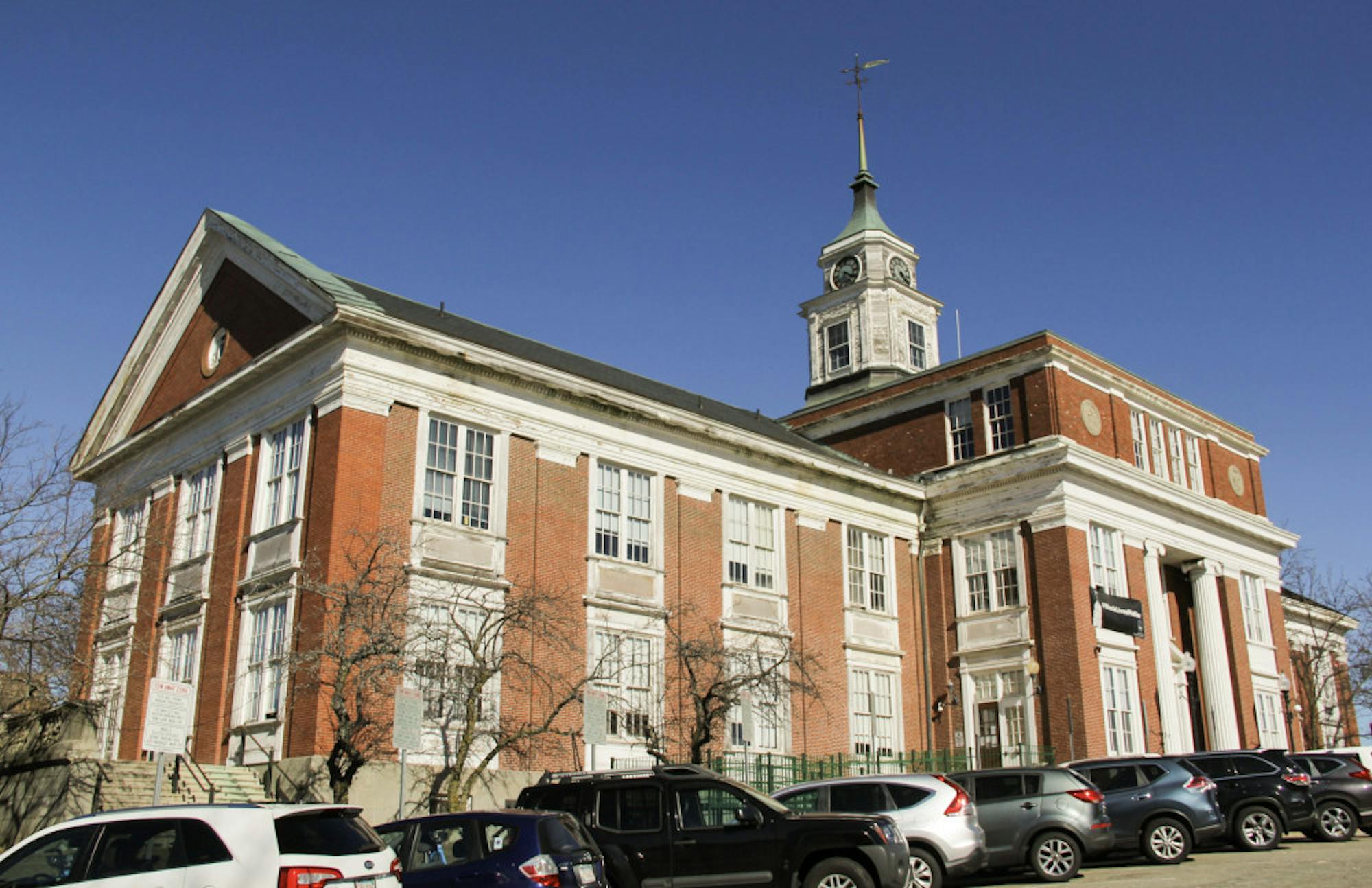The Somerville City Council is calling on Mayor Joe Curtatone to establish a restitution fund for those affected by the war on drugs. In a city council meeting on Aug. 26, Councilors Will Mbah, J.T. Scott and Ben Ewen-Campen proposed this resolution in order to provide funds for residents of Somerville that have been harmed by the war on drugs.
Mbah, a sitting councilor on the Somerville City Council who also announced his candidacy for mayor of Somerville in April and finished first among all candidates in Somerville's mayoral preliminary election, led this resolution.
In an email to the Daily, Mbah spoke to the importance of restitution and its necessity for the Somerville community. Mbah noted the impact of the war on drugs on Black community members, in particular previously incarcerated Black men.
“The [war on drugs] has literally destroyed Black lives in our communities, and the harm is ongoing,” Mbah wrote. “People, especially young Black men, are still failed by our education and economic system.”
The restitution proposal, in its early stages, describes a process of redistributing profits from cannabis sales to those in Somerville who had been indicted on cannabis charges during the war on drugs.
Mbah also discussed the importance of redistributing the wealth gained in the cannabis business since its legality.
Ewen-Campen shared his reasons for supporting this proposal while also outlining the impact of the presence of legal cannabis in the city.
“The reason that I co-sponsored is because we are seeing the cannabis industry now really take shape in the state and in Somerville and there is going to be an enormous amount of wealth pouring into the industry and a lot of people are going to get rich,” Ewen-Campen said.
Ewen-Campen also mentioned the importance of allowing for the redistribution of wealth generated from cannabis sales to those who had lost so much from its prior criminalization.
“I think it's really critical that we take a look at all the people who have been harmed and incarcerated by the criminalization of cannabis and other drugs in our past," Ewen-Campen said. "I don't think that there's any way that we're going to be able to make those people whole, but I think that we have a responsibility to do everything we can to support them."
Margie Skeer, an associate professor at the Tufts University School of Medicine, discussed the scale of the harm caused by cannabis criminalization among Black Massachusetts residents.
"Despite marijuana being decriminalized and then subsequently legalized for recreational purposes, we still see a significant disparity between Black people who were arrested for marijuana possession as compared to white people,” Skeer said.
Somerville is not the first local city to consider a restitution program; Mbah said he drew inspiration from the Cambridge City Council's restitution proposal.
“I was inspired by my friend, Cambridge City Councilor Quinton Zondervan, who sponsored a similar resolution in Cambridge," Mbah said. "Quinton and I both saw the tax revenues from cannabis were beginning to flow into our communities, and thought it should be incumbent on our communities to use the revenue to make up for at least some of the harm done."
The Somerville City Councilors called on Curtatone to respond by Oct. 4, and they hope to launch the project by July 22 of next year if it is approved. What the program will look like remains unclear, but Mbah nonetheless discussed what he hopes the program will accomplish.
“We will need to organize a coalition that represents the communities that have felt the impact of the [war on drugs] the hardest and give this group the authority to determine how the funds should be spent,” Mbah said. “The funds could be distributed not just to individuals who have been harmed by the war on drugs, but to community organizations that are working to repair or mitigate the negative impact the war on drugs has had on communities of color.”
Skeer also shared with the Daily other measures, in addition to restitution, she wants to see implemented by the government in communities in the future.
“I think ... using ... tax revenue from the legalization of marijuana in the state is an important first step,” Skeer said. “But additional social services and programs that focus on education or job training, opportunities to purchase housing ... are the kinds of ... opportunities they haven't had as a result of being discriminated against.”
Skeer shares Mbah's belief that those in charge must listen to the needs of the affected communities in order to best serve them.
“I do think it's important to talk with the communities that have been affected [about] what do they think they need too," Skeer said. “I think a lot of times people in power make decisions based on what they think is important rather than really hearing from the communities.”






